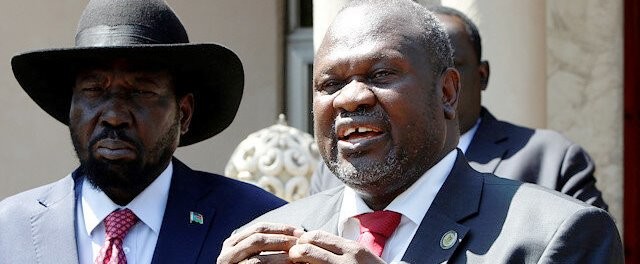The body monitoring South Sudan’s peace deal has expressed concern over failure by the parties to agree on how to share out the country’s 10 states between them.
Last month, the IGAD Council of Ministers gave South Sudan’s rival parties 15 days to break the deadlock over allocation of the states.
This came after earlier talks over responsibility sharing at the state and local governments ended in stalemate, despite attempts by the body monitoring the peace agreement to mediate.
“These were unsuccessful in finding a solution. The issue was then raised at the 71st IGAD Council of Ministers meeting held on 23 April 2020, and the meeting resolved that the issue should be settled by the parties within 15 days,” Guy Gabriel, a communication advisor to RJEMC said in an email to Radio Tamazuj on Friday.
He added, “Now the date for resolution has passed, and the R-JMEC proposals for resolution have been rejected by the parties, RJMEC has referred the issue to the IGAD Heads of States and Government, of which H.E. Abdallah Hamdok, Prime Minister of Sudan, is Chairman, for their intervention pursuant to Article 7.11 of the Revitalised Peace Agreement.”
The RJMEC official further said that IGAD, as guarantors of the peace agreement is expected to provide direction on this matter.
According to the revitalised peace agreement, the responsibility sharing at state and county levels shall be 55% for President Salva Kiir’s side, SPLM-IO 27%, SSOA 10% and OPP 8%.
The positions that shall be shared as per the responsibility sharing formula are governors, speakers of state legislatures, state councils of ministers, state legislatures, county commissioners and county councils.
The peace agreement also says SPLM-FDs shall have three state ministers in states of their choice.




